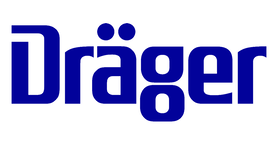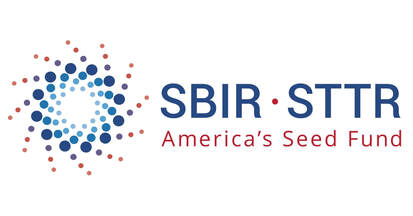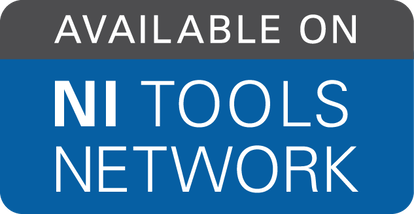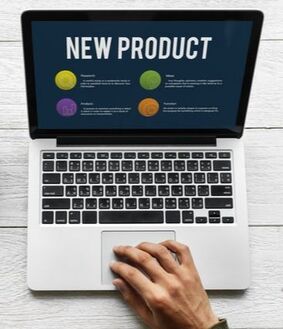|
Happy New Year 2024!
We would like to announce that all of our software applications will now be licensed using yearly subscriptions. And the cost of these subscriptions is lower than the perpetual licenses we sold last year. Upon purchase, we will email you an Activation ID and Password which can instantly unlock the software. Your subscription will remain active for 1 year and can be easily renewed. We are certain this switch will be a positive change for both our customers and our company. It means the entry price is lower, and it also means we don't need to ship you a license dongle. Here are some of the details:
0 Comments

Do you need data from a Draeger patient monitor? MediCollector now supports integration with the Draeger Infinity Series of patient monitors, including the Draeger Infinity Delta, Kappa, Gamma, Vista and IACS models.
Data can be acquired, recorded and streamed to external applications for all your medical data-acquisition and integration needs. For more details about specific model numbers and required cabling, please see our list of Support Devices. Researchers at Rice use MediCollector to Test Their Novel Temperature Monitor in Malawi, Africa11/5/2020 
Recently, a group of researchers from Rice University developed a novel neonatal temperature monitoring system for use in low-resource settings. To test and validate their new system, they brought it to a hospital in Malawi, working in collaboration with the University of Malawi, and used MediCollector BEDSIDE to compare data from their device to a standard Philips patient monitor. Learn more about this interesting work in their publication in BMJ Pediatrics Open.
Sosa Saenz, Sonia E et al. “Evaluation of a continuous neonatal temperature monitor for low-resource settings: a device feasibility pilot study.” BMJ paediatrics open vol. 4,1 e000655. 7 May. 2020, doi:10.1136/bmjpo-2020-000655 
The National Institutes of Health (NIH) has awarded a Small Business Innovative Research (SBIR) grant to MediCollector and Dr. Benjamin Matthews, Division of Medical Critical Care, Department of Medicine, Boston Children's Hospital, in order to develop a ground-breaking new hospital information system.
A typical hospital bedside is cluttered with medical devices which continuously generate huge amounts of data. However, most of that data is never recorded or transmitted. This lack of integration leads to roadblocks for medical researchers and can lead to clinical workflow inefficiencies, often requiring nurses to manually enter data into electronics medical records systems. With the advancement of Artificial Intelligence (A.I.) in healthcare, there is also a growing need to access this trove of medical data. MediCollector will be collaborating with Dr Benjamin Matthews of Boston Children’s Hospital to develop and test a ground-breaking new Medical Device Data System (MDDS) which will capture and record this trove of data and make it easily accessible through a simplified interface. The new system will utilize the latest HL7 FHIR protocol which is rapidly becoming the globally accepted standard for transmitting data in healthcare. This will allow external systems, such as smartphone apps and AI algorithms, to easily access live data from patients in the hospital. “With this funding from NIBIB, MediCollector will be able to expand upon its previous work in medical device integration. The new system will allow data to be acquired from numerous medical devices simultaneously and make the data easily accessible to external systems.” states John Osborne, founder of MediCollector. “Previously, researchers and AI developers struggled to get access to live data from the hospital bedside. Our new system will utilize the HL7 FHIR standard to make it easy to capture and stream this data.” For more information, please see the NIH’s public project summary page:
Research reported in this article was supported by the National Institute Of Biomedical Imaging And Bioengineering of the National Institutes of Health under Award Number R43EB030890 . The content is solely the responsibility of the authors and does not necessarily represent the official views of the National Institutes of Health.
 MediCollector is now available on the NI Tools Network, a library of software tools and applications that are certified by National Instruments, the creators of LabVIEW. Getting listed on the NI Tools Network is like a stamp of quality from such a trusted company as NI. Each piece of software on the NI Tools Network is thoroughly tested and certified by NI, and we are proud to be a part of their network.  HL7 (Health Level 7) HL7 (Health Level 7) Do you need to get data from a patient monitor into your EMR? This is part of a challenge known as Medical Device Integration (MDI) in hospitals. Using HL7, MediCollector can now be your MDI solution by functioning as a "middleware" to transfer data from medical devices into hospital information systems (HIS) such as electronic medical records systems (EMR / EHR). Wow, that's a lot of buzzwords! If you're looking to get data from your patient monitors into your EMR, MediCollector can now do this using HL7. If you need help with MDI, please see our MDI solutions, or contact us.
MediCollector SERVICE: For seamless & continuous streamingMediCollector SERVICEThis product is designed for customers who want to continuously stream and/or record medical device data in the background. By using MediCollector SERVICE, you don't need to worry about the complex communication protocols and cabling requirements for each individual device. Simply embed MediCollector into your system, and let it run invisibly in the background. It runs as a Windows Service, so it will launch when the computer starts up, run continuously, and automatically recover from errors for uninterrupted data streaming. MediCollector CLI: An API for polling medical device dataMediCollector CLIThis command line interface is designed for software developers who want to quickly and easily query/poll a medical device for live data. Data is immediately outputted to a simple text file. It can be scripted or automated to run frequently (every 10 minutes?) to create a simple database of live data over time.
 MediCollector would like to congratulate the team of researchers from the University of Canterbury in New Zealand and Monash University in Malaysia for their paper at the International Federation of Automatic Control's 10th IFAC Symposium on Biological and Medical Systems BMS 2018. This team used MediCollector to gather data for their study of lung mechanics in preemies. We wish them continued success in their work! The full text of their publication is available using the link below. Tae Kim, Kyeong & Howe, Sarah & Chiew, Yeong Shiong & Knopp, Jennifer & Chase, James. (2018). Lung Mechanics in Premature infants: Modelling and clinical validation. IFAC-PapersOnLine. 51. 225-230. https://doi.org/10.1016/j.ifacol.2018.11.638. A research team from the Wake Forest University School of Medicine in Winston-Salem NC recently published a manuscript in the Journal of NeuroInterventional Surgery detailing their successful research studying venous sinus waveform morphology. This team used the MediCollector BEDSIDE software for data collection of venous manometry data. For more details about their successful study and how MediCollector was used, you can access their publication here: West JL, Garner RM, Greeneway GP, et al. Venous waveform morphological changes associated with treatment of symptomatic venous sinus stenosis. Journal of NeuroInterventional Surgery Published Online First: 21 March 2018. doi: 10.1136/neurintsurg-2018-013858 |
PurposeThis blog provides all the latest news and updates related to MediCollector.
AuthorJohn Osborne
Founder of MediCollector Archives
June 2024
Categories |




 RSS Feed
RSS Feed